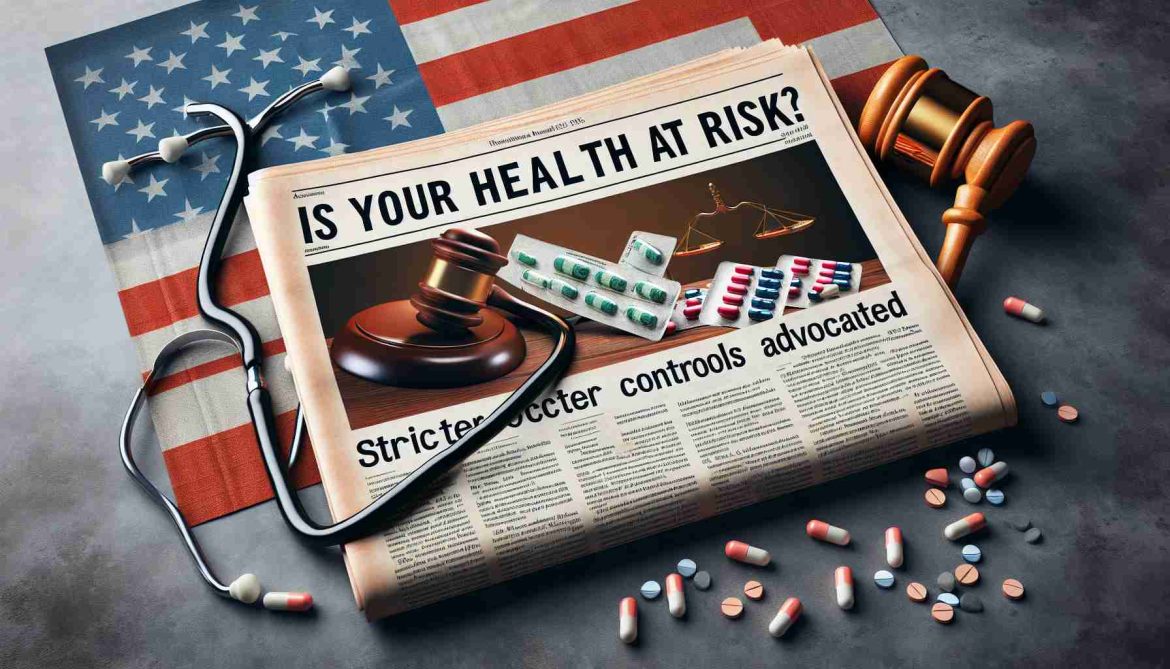Growing Concerns Over US-China Biotech Collaborations
In an escalating effort to safeguard national interests, US lawmakers and industry leaders are advocating for enhanced export control measures aimed at preventing collaborations between American biopharmaceutical firms and China’s military. These calls come amidst rising apprehension about the potential misuse of US technological advancements in the realm of biotechnology by the Chinese People’s Liberation Army (PLA).
A coalition of policymakers recently expressed their concerns in a formal communication to Gina Raimondo, the US Secretary of Commerce. They highlighted the need for the government to impose stricter regulations on US companies interacting with PLA medical institutions, which have been involved in numerous clinical trials—raising alarms about the risk of sensitive data and intellectual property falling into militaristic hands.
The suggested changes build on recent initiatives by the Bureau of Industry and Security, which seeks to tighten controls on military-related end-users. The letter points to the PLA’s ambitions within the biotechnology sector as a significant national security and public health concern.
Furthermore, lawmakers propose that the definition of “Military End User” should evolve to encompass PLA medical facilities, thereby bolstering oversight of any clinical trials conducted with them. They believe that prioritizing partnerships with civilian medical institutions in China would not only enhance national security but also thwart potential military exploitation of US innovations.
With biotechnology emerging as a critical battleground in the US-China rivalry, the stakes have never been higher.
Escalating Tensions: US-China Biotech Partnerships Under Scrutiny
Growing Concerns Over US-China Biotech Collaborations
Amidst rising geopolitical tensions, US lawmakers and industry leaders are increasingly wary of biopharmaceutical collaborations between American firms and Chinese military institutions. Concerns about the potential appropriation of US biotechnology advancements by the Chinese People’s Liberation Army (PLA) have led to calls for tighter export control measures.
New Regulatory Frameworks
Policymakers are advocating for an updated framework that clearly identifies the PLA’s medical institutions as “Military End Users.” This definition shift is crucial, as it aims to impose an additional layer of oversight on collaborative clinical trials and any exchanges of sensitive information and technology. The Bureau of Industry and Security (BIS) is already in the process of implementing more stringent controls targeting military-related users, reflecting a growing consensus on the need for rigorous regulations in this sector.
Strategic Importance of Biotechnology
Biotechnology is increasingly viewed as a critical area for both nations, with implications not only for public health but also for national security. As the world grapples with threats ranging from bio-warfare to bioterrorism, the potential military applications of biotechnological innovations raise alarm bells. Lawmakers emphasize that American innovations should be protected from any potential exploitation by military entities, particularly in areas like gene editing, synthetic biology, and vaccine development.
Prioritizing Civilian Collaborations
Lawmakers propose steering partnerships toward civilian medical institutions in China as a strategy to mitigate risks. Collaborating with civilian entities could safeguard sensitive information while fostering beneficial scientific exchanges without the looming threat of military misuse. By enhancing oversight on military-related collaborations, the US aims to ensure that its cutting-edge innovations are utilized for peaceful purposes.
Potential Impact on Innovation and Collaboration
The tightening of regulations may impose constraints on US firms, prompting them to reconsider existing partnerships and future ventures in China. While the goal is to protect national interests, these measures could inadvertently stifle innovation and restrict access to valuable markets.
Industry Reactions and Predictions
Industry leaders express mixed feelings toward these proposed changes. While recognizing the importance of national security, many fear that excessive limitations might hinder international collaboration, a key driver of innovation in biotechnology. They argue that balanced regulations can ensure security without completely severing ties that could lead to critical advancements in healthcare.
As the US refines its approach to biotech partnerships, the implications for global healthcare collaboration are profound.
Conclusion
As biotechnology continues to intertwine with national security considerations, US lawmakers, industry leaders, and officials face the challenging task of balancing innovation with protection. The evolving landscape of US-China biotech collaborations requires vigilance and strategic foresight to navigate the complex interplay of scientific progress and security imperatives. For ongoing updates and insights, visit Biotech News.
